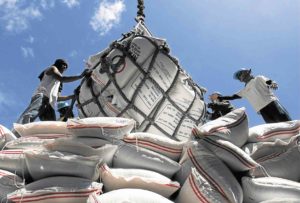Long-term equity investments into the Philippines dropped sharply in August and declined by almost as much in the first eight months of the year as global economic uncertainties dampened foreign businessmen’s sentiment toward the country, the central bank said.
According to the Bangko Sentral ng Pilipinas, foreign direct investments (FDIs) posted a net inflow of $416 million in August 2019, which was 45.1 percent lower than the $758 million in net inflow recorded in the same period last year.
The bulk of the net investment inflow for the month was in the form of investments in debt instruments—consisting mainly of intercompany borrowings or lending between foreign direct investors and their subsidiaries or affiliates in the Philippines—which reached $263 million compared to $534 million in the same period last year.
Nonresidents’ net equity capital investments dropped by 55.3 percent to $77 million from $172 million in the same month last year as the decline in placements from $187 million to $86 million outweighed the decrease in withdrawals from $16 million to $10 million.
Equity capital placements during the period came mostly from Japan, the United States, Hong Kong, Cayman Islands and Singapore. These investments were channeled mainly to manufacturing; real estate; financial and insurance; information and communication, and wholesale and retail trade industries.
Reinvestment of earnings expanded by 46 percent to $77 million from $53 million in the same month last year.
On a cumulative basis, FDI net inflow of $4.5 billion was recorded for the January-August 2019 period, lower by 39.7 percent than the $7.5 billion in net inflow last year.
“The ongoing uncertainty in the global environment continued to dampen investor sentiment, which caused postponements in investment plans,” the central bank said.
It added that the decline in FDIs resulted from the contraction in nonresidents’ net investment in debt instruments during the period by 32.5 percent to $3.3 billion from $4.9 billion and equity capital by 73.4 percent to $536 million from $2 billion.
Net equity capital investments declined as placements dipped by 49.6 percent to $1.1 billion from $2.2 billion, coupled with the 195.6 percent increase in withdrawals to $578 million from $196 million.
Equity capital placements during the period were sourced largely from Japan, the United States, Singapore, China and South Korea.
The industries that benefited from these capital infusions were financial and insurance; real estate; manufacturing; transportation and storage, and administrative and support service. Meanwhile, reinvestment of earnings increased by 15.6 percent to $671 million from $581 million in the comparable period in 2018.


